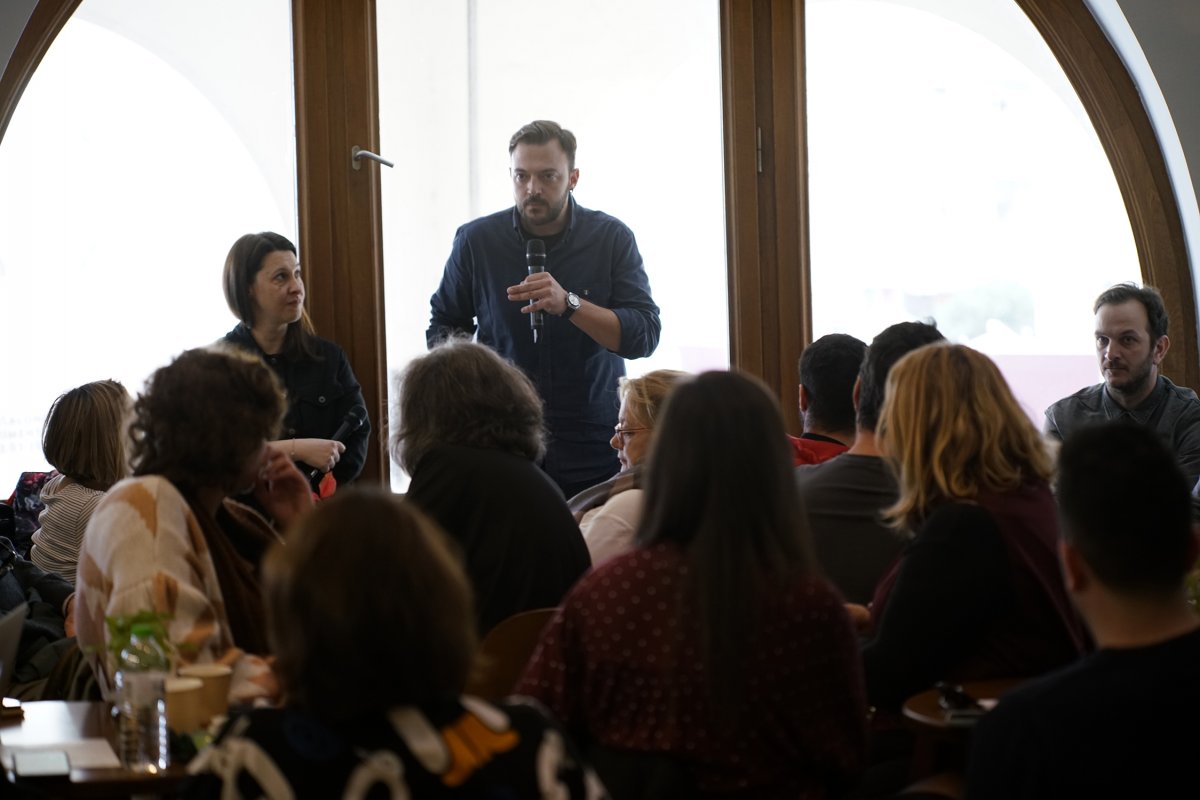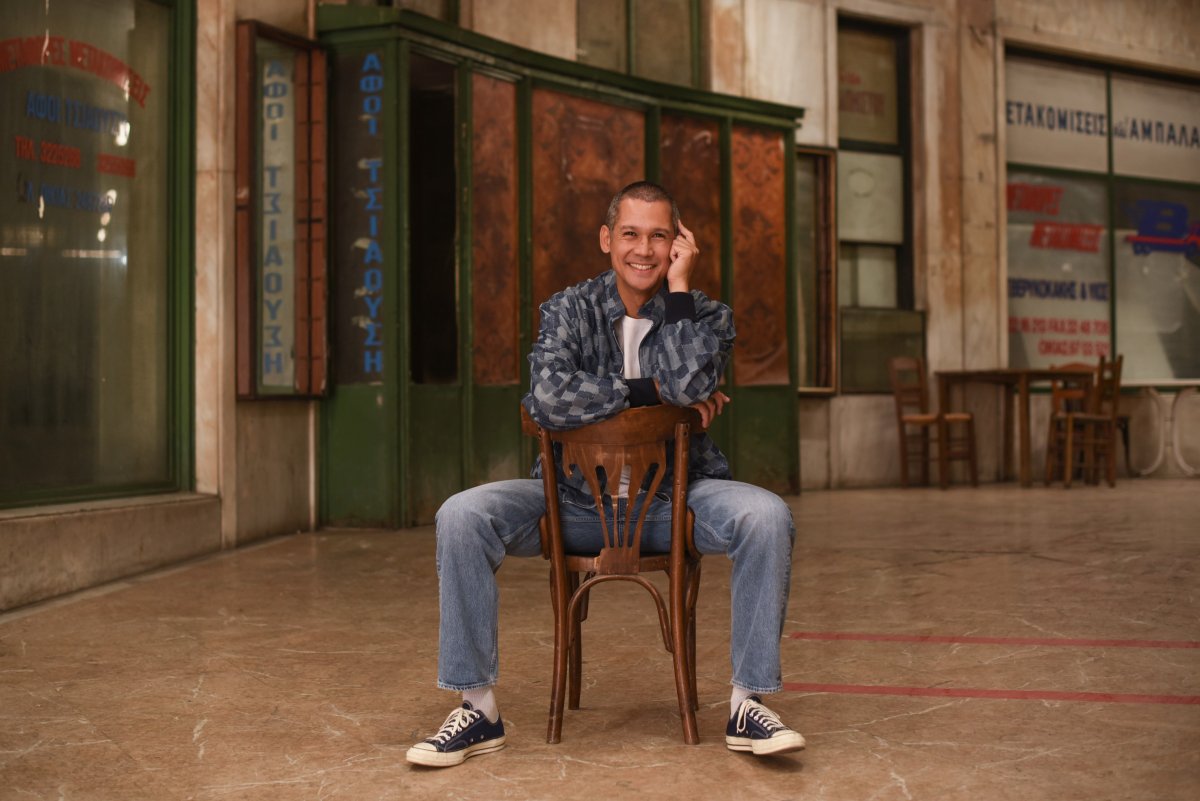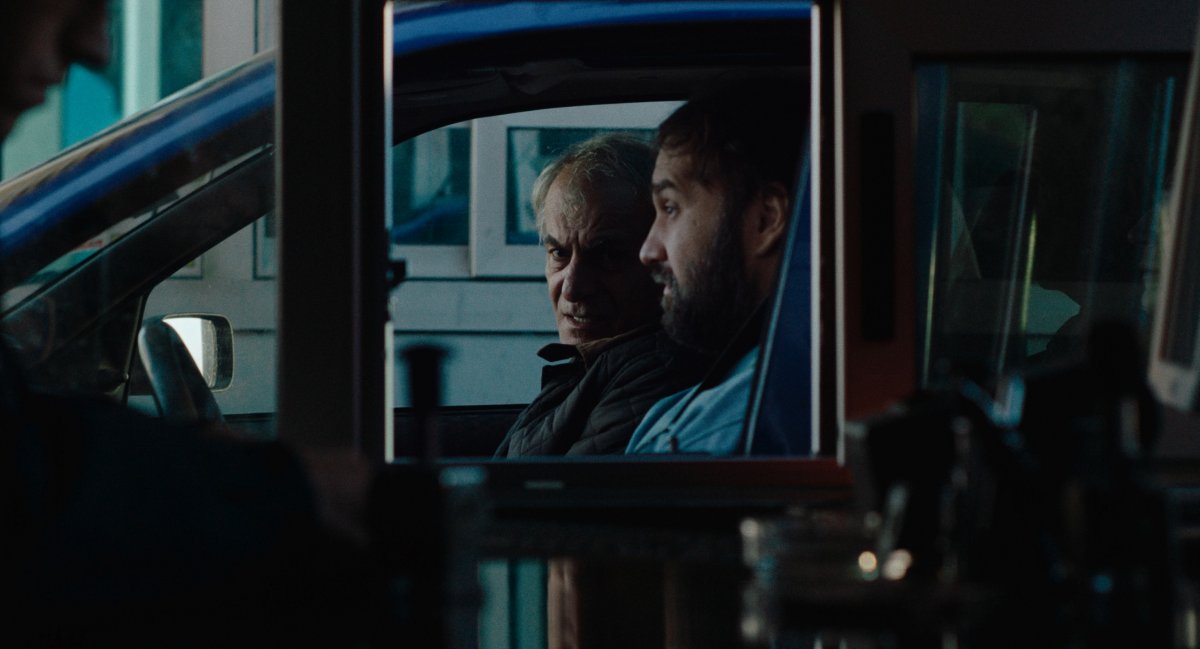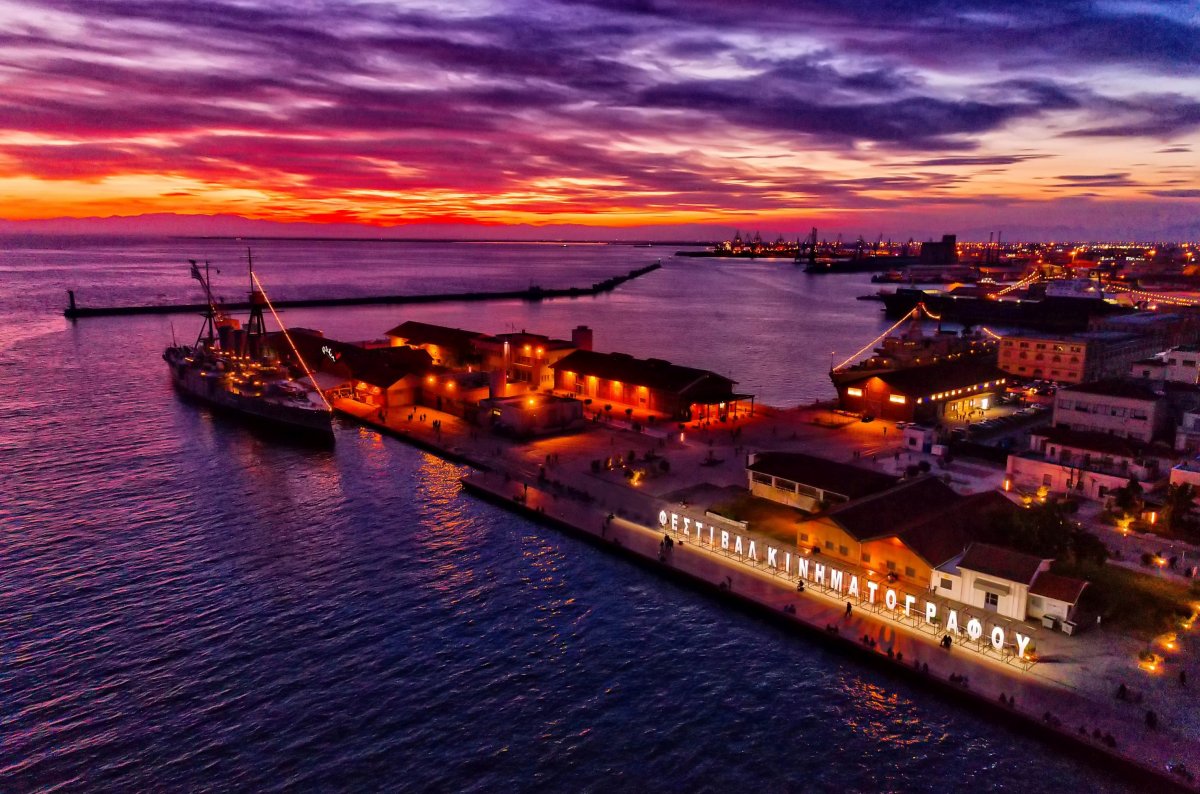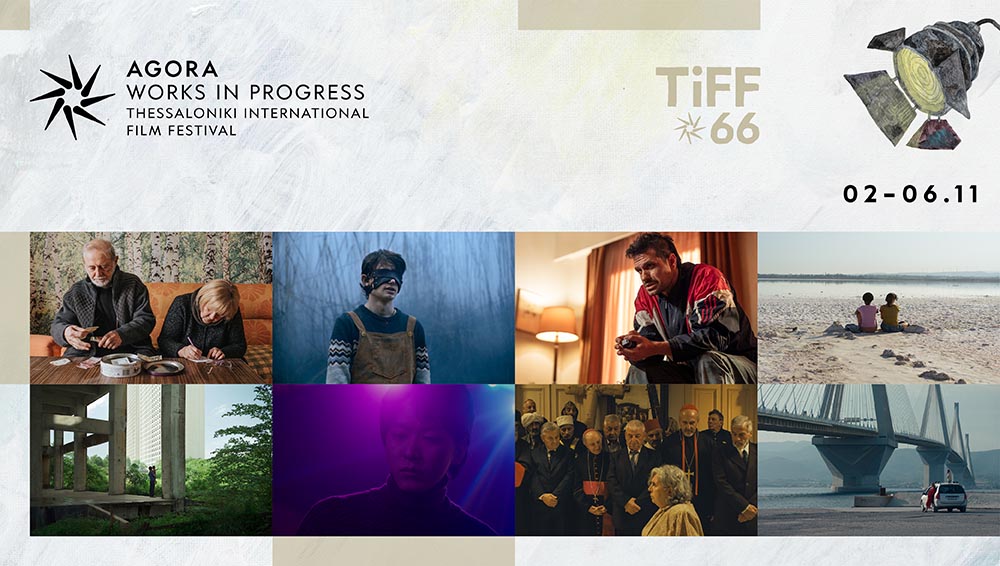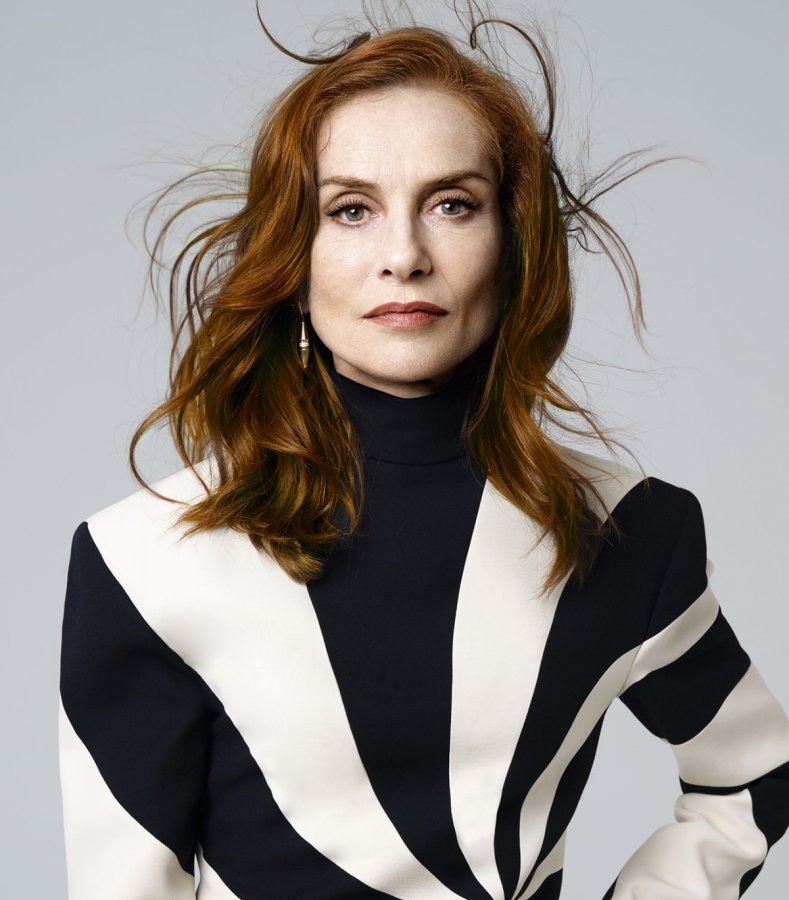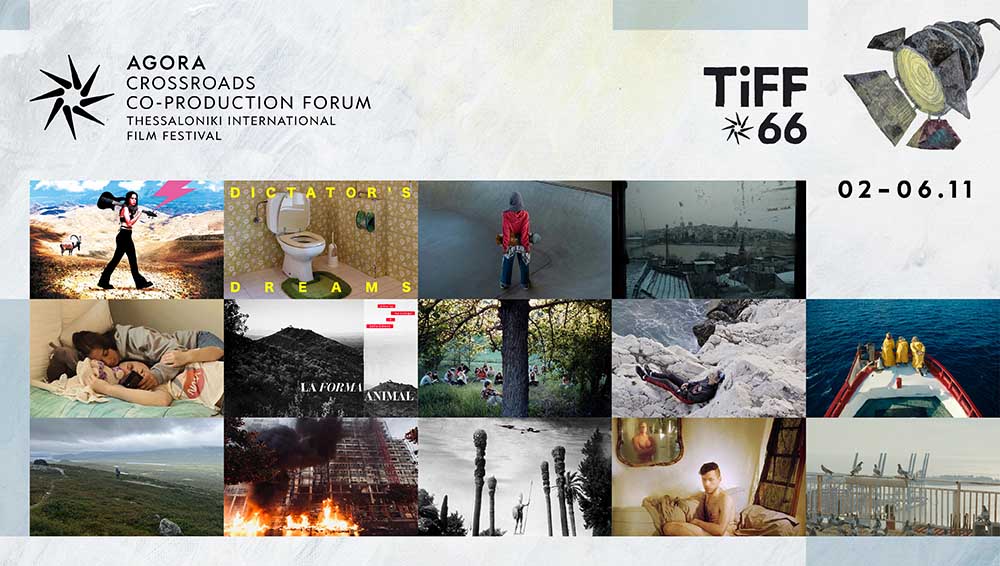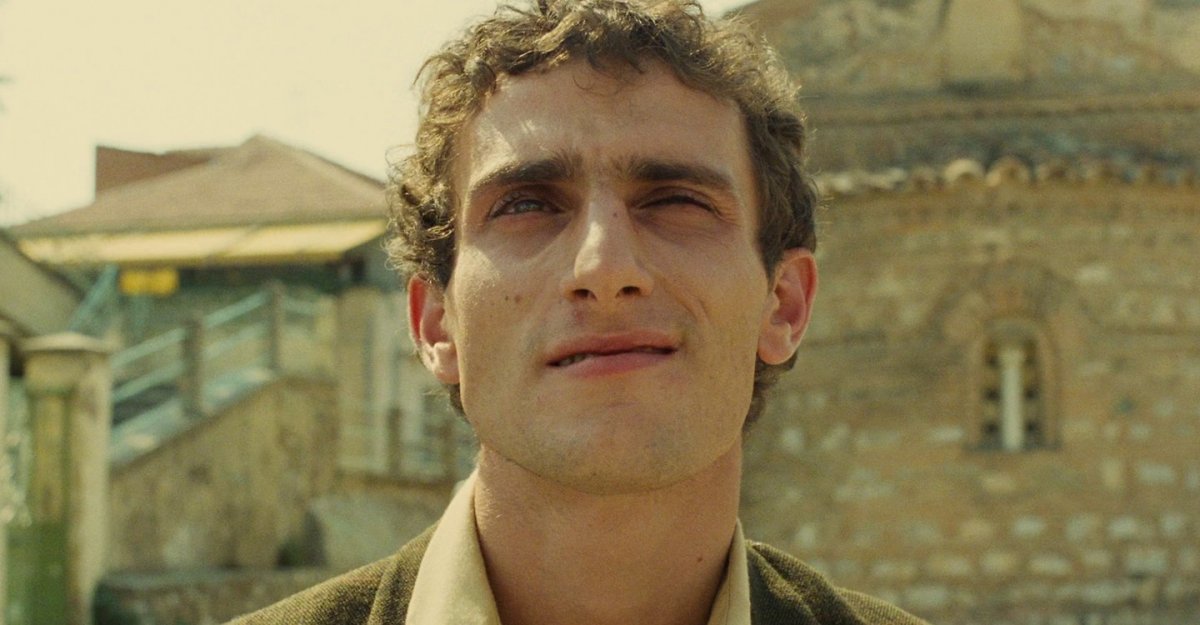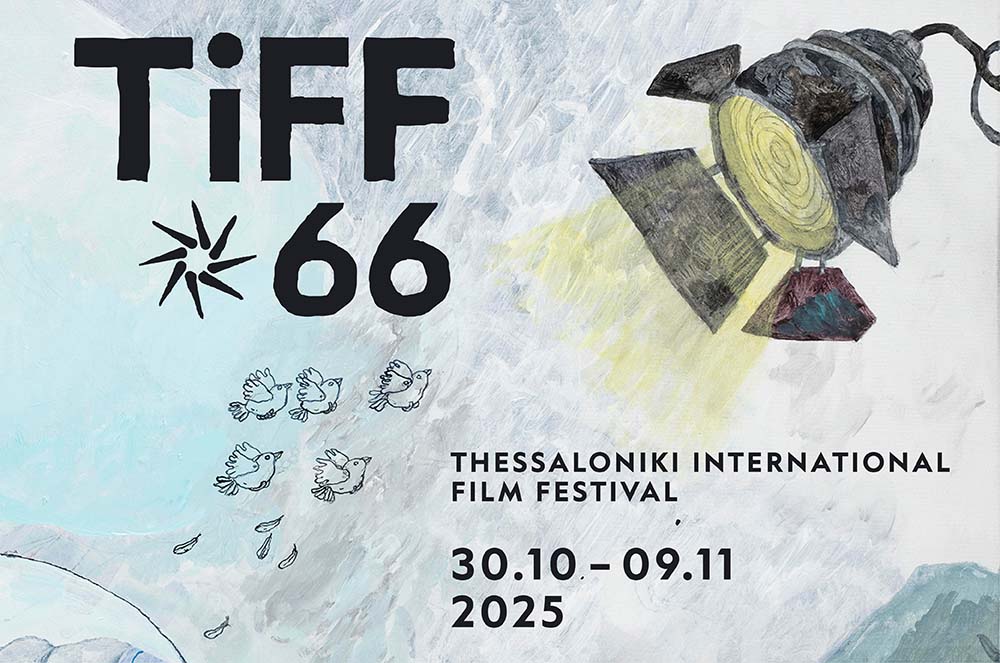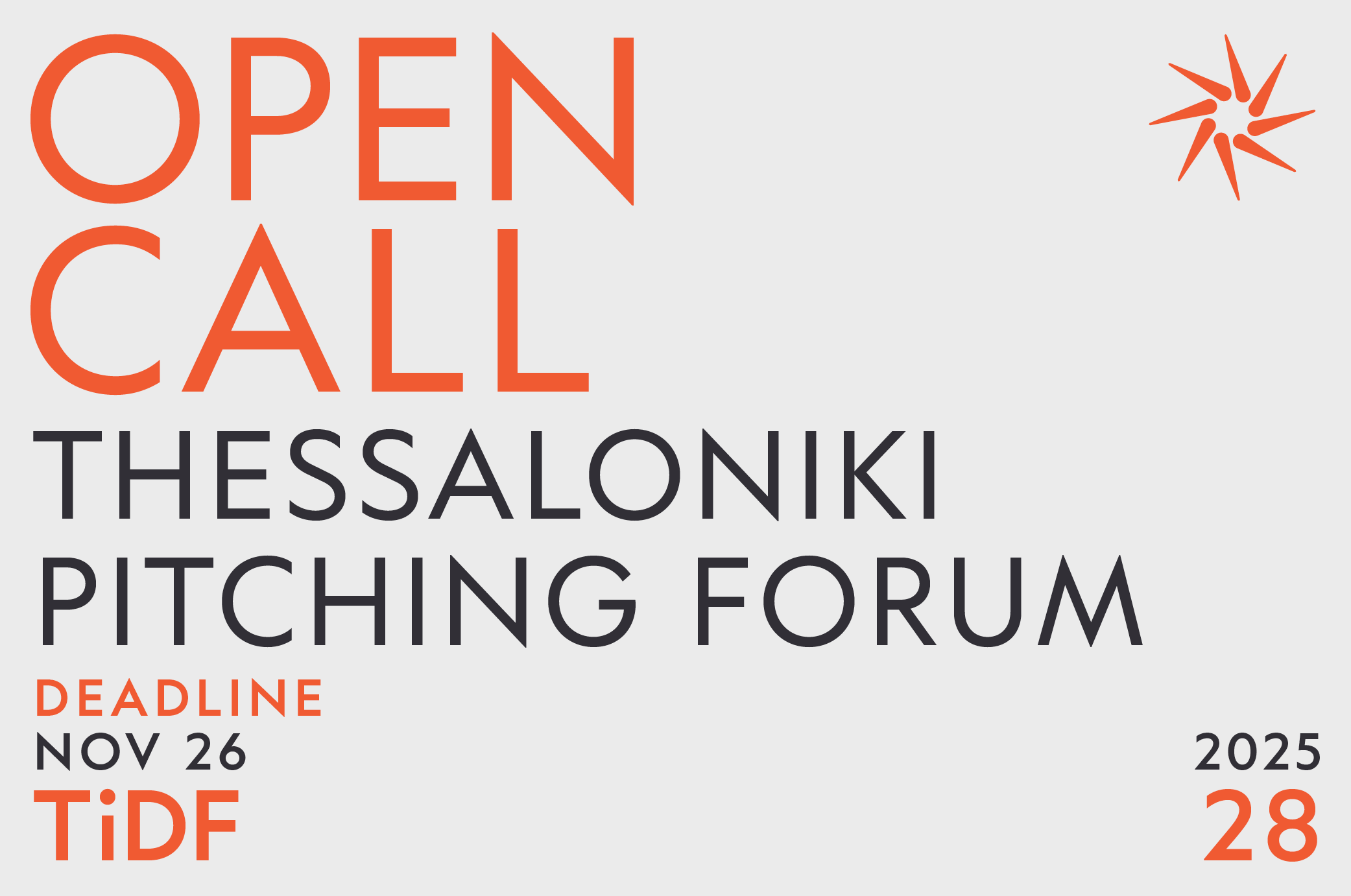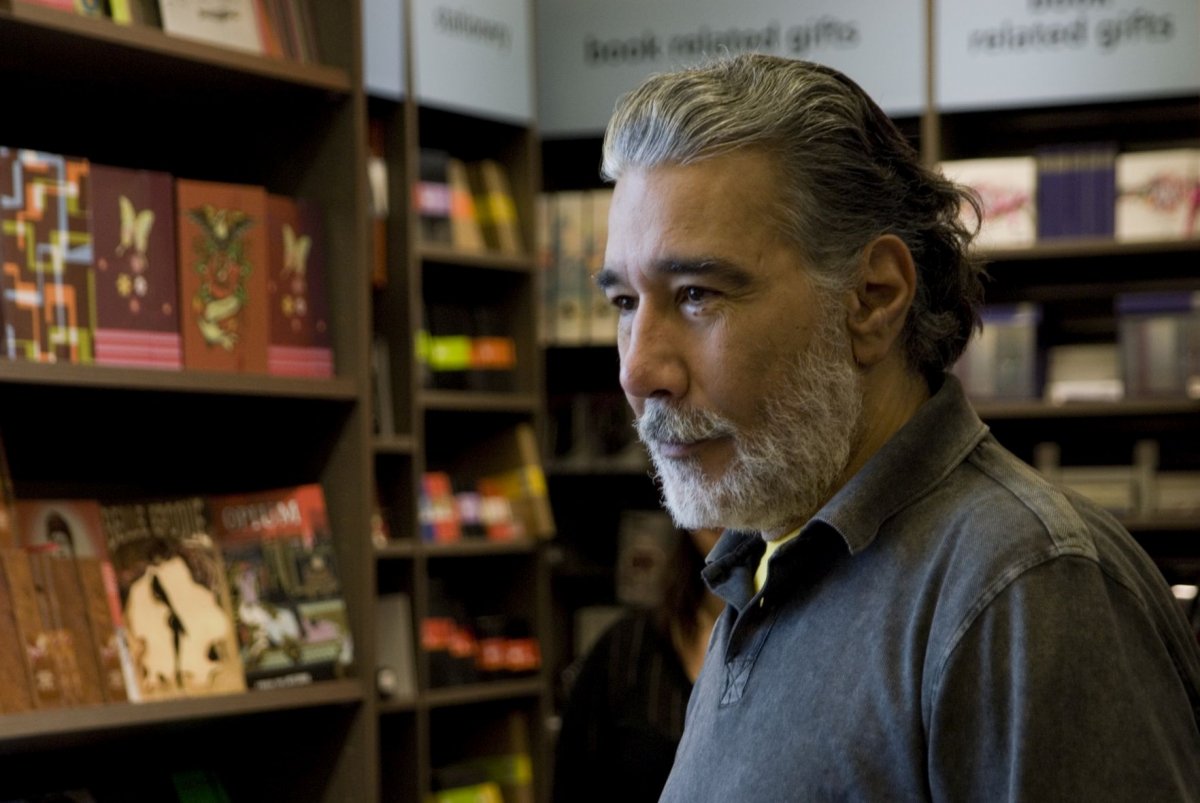Within the framework of the 25th Thessaloniki Documentary Festival, the special hearing of the podcast Mute - The Silent Violence of the Parting Walls by Andreas Vagias took place on Friday, March 10th, in Olympion’s Green Room. The podcast, which explores the issue of gender-based violence in everyday life through the experience of the people who have suffered it, has been awarded by the Festival and the non-profit journalistic organization iMEdD, which was founded on 2018 with the exclusive financial support of Stavros Niarchos Foundation (SNF). The podcast won the Podcast Development Award for an original audial documentary based on journalistic research and documentation.
The event was prefaced by the Festival’s Communications Manager, Dimitra Nikolopoulou. “Welcome to this experimental hearing of a podcast in a public space and not our headphones, as usual. On this occasion, which is very common abroad, people gather and together listen to a podcast, wishing to see each other’s reactions and the way their fellow-listeners are affected. Of course, this possibility is offered by our Podcast Room, which functions however on different terms: it is a small museum room with low lighting, where you can go in and out anytime you want. We will also soon have the chance to discuss the experience we all shared together”, she noted initially, presenting the podcast by Andreas Vagias.
Before the hearing, journalist Angreas Vagias shared some thoughts with the audience. “Thank you so much for being here. First of all, I hope you and your loved ones are well. The tragic accident at Tempi has left a collective trauma, it is natural for rage and sadness to prevail because year-long neglects of a systemic issue have emerged. It is another systemic issue, what we will discuss and listen to today, the issue of gender-based violence. We will listen to women who have suffered from gender-based violence and the patriarchy. And actually, here, the place where violence occurs is of great importance. What we often hear, after a femicide, an abuse, is that no one knew. So, we try to investigate if this is in fact true, if none of us know or why someone might leave a victim unprotected”, Andreas Vougias stated.
The hearing of the podcast followed, which lasted 42 minutes. Then, the audience had the chance to participate in a dialogue with the creator and to address questions or share their experience of the co-hearing process. Andreas Vagias first took the floor. “We had to deal with a big load of material. We had an 8-hour material, from which we had to deliver a 40-minute podcast. I want to thank some people, because this podcast is not a personal piece but a collective endeavor. Initially, I want to truly thank iMEdD, for giving me the chance to focus and commit myself to work in an organized way. I have been a journalist for 14 years. It took a lot of work for us to deal with this material. This podcast would not have happened under any other circumstances. I also want to very much thank Panagiotis Menegos, who is here with us today, and who played a determining role in the creation of the podcast, because he was actually the person with whom I could talk. I would be an utterly alone guy with all this material and all this experience in hand, discussing with these women, and I would be talking to myself. With him, I had the chance to try things, to know if I’m on the right track. Also, I want to thank Kostas Grountas who is with us, who wrote the music. To thank Aris Athanasopoulos, with whom I had an excellent collaboration and who took upon the sound mixing, as well as Evgenios Kalofolias, who took upon the visual. Also, I want to thank many friends who consulted me before entering the editing stage. I had to watch their responses to see where this endeavor is going. And I want to deeply thank - I will be trite, as one does on such occasions - my partner, Evgenia, who was the person I have been in constant conversation with since the pitch took place in September. As an architect, she helped me to as a journalist integrate the sense of space in what we call journalism. In every school of Journalism, they tell us about the five Ws. “Where” is of great importance. Here, space has been a determining factor for examining the violence at its core. I would like to again thank these women. It is an honor to have their trust, because it is unimaginably hard for them to recall all this trauma”, mr. Vagias explained.
Mr. Vagias talked about his choice to omit scenes of intense violence from the podcast. “We wanted to protect these women. There are many things they don’t mention in their stories. I think, however, having a holistic image of the story, that nothing defining is missing. Perhaps what is missing is the very violent scenes. But my intention was not to make a podcast that sells blood, if I may be vulgar. Mass Media is thirsty for blood, selling the victims’ pain. We wanted to show parts of the story”, he distinctly said.
Responding to a relevant question, he discussed the process of approaching these women. “We had an original basis for the script about the types of characters we’re looking for. There is something lonely about this job, but if there is also an element of collectivity, it all becomes much more interesting. The cases came about from journalistic investigation. This podcast does not profess it has said it all. Luckily, nothing changed along the way. I say so, because anything could change at any point, these women might have changed their minds, they may have decided they didn’t want to talk after all. As for the face-to-face meeting, this was as intense for them as it was for me. As you heard in the podcast, one of the women suffered a panic attack during the interview, although I couldn’t tell at that moment. I want to thank iMEdD for the opportunity I had to work in a non-classic way: I didn’t have to deal with the intense stress of having to do a 15-minute interview. I had the chance to discuss and to speak. And this was important for them, so that they could trust me and feel that they were not talking to someone who wanted them to talk so that he could then say “look at these awesome and chilling stories I found”. There were actually excerpts that could have been included and were left out for this exact reason”, he mentioned.
Then, mr. Vagias talked about the possibilities that podcast as a medium offers in regards to this kind of sensitive issues, but also about his choice to not use the technique of narration. “The attitude of the interviewee is completely different when there is no led-light camera making everything awkward. At times, unfortunately, the interview can turn into interrogations. I had expressed my desire to not have a narration in the podcast, so that it does not resemble a news story. But for this to happen, the material itself has to agree. Which means reaching a point where the participants can be in dialogue with each other without having met. I very much know that the concept of narration works as guidance and in no way did I want to put myself, a man, in this position, giving a lecture and pointing my finger at the women about what’s going on with gender-based violence”, mr. Vagias stressed.
On the podcast’s ability to facilitate the narration of such stories, Panagiotis Menegos, content editor and head of journalistic podcast production of iMEdD, commented: “Sometimes, the lack of image “unlocks” the interviewees more easily and offers a greater freedom as to how you will develop the story, because you are once and for all free of having to deal with the visual clichés we used when telling these stories in the past. Kosta’s music also worked so well, subtly, with no attempt to add heavy weight to the issue, to force emotions to become melodramatic. It is something we didn’t want from the beginning. I think we succeeded”, he stressed.
Andreas Vagias went on to discuss the personal search and self-doubting process, which creating this podcast put him through. “I had to deal with the aspect of verbal, psychological and physical violence these women have suffered. At the same time, I also grew up in a patriarchal society. I am not saying this as a credential. I know I have not been physically violent. In this podcast, there are only women participants, because I believe men have spoken a lot, but it of course, addresses men as well. And I must say that I have found myself in a process of huge inner doubts about whether I may get a call tomorrow morning from a girl I once used to date and she’ll say “do you know what you did to me when we got into a fight that night?” I am not trying to leave myself out of it. The issue of gender-based violence and patriarchy is relevant to all of us”, he mentioned.
Soon before the end of the talk a female listener of the special hearing took the baton and and shared her own painful memories: “I have been raped abroad. We should not be ashamed, we should go out and say it, this is what makes us stronger. When we hide behind cameras or avoid saying our name, some kind of victimization occurs. I know go out and say it, hoping to encourage other femininities to express themselves publicly, with the ultimate purpose of making a change. The word “victim” also makes us weaker, women who have been raped are not victims, they are survivors”.


